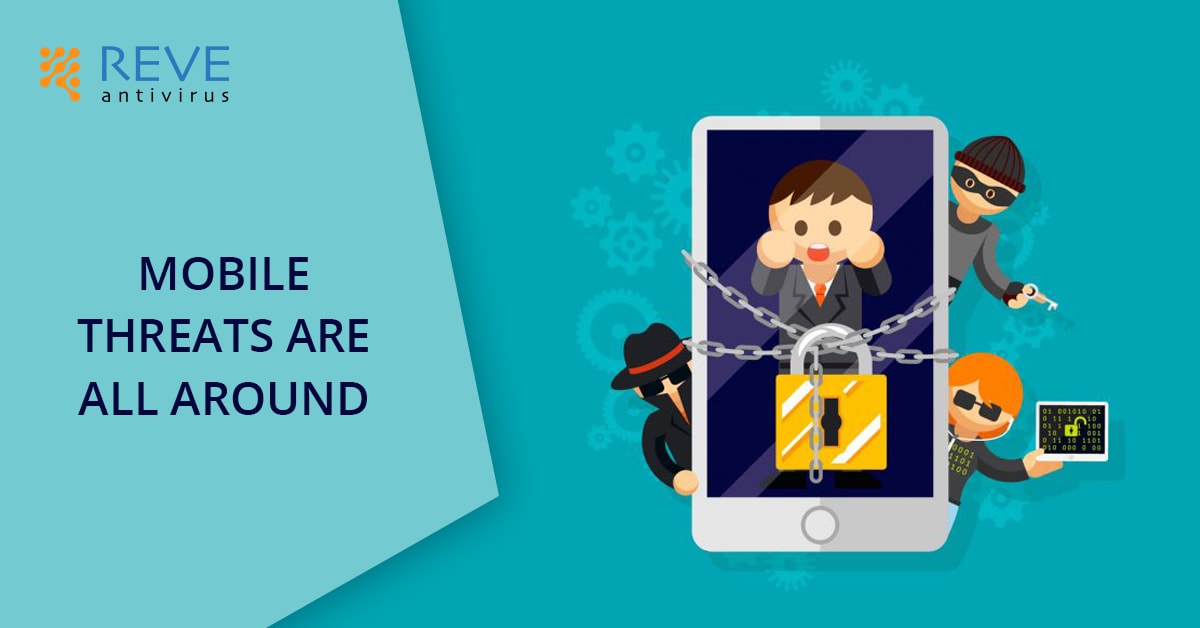
Today, a smartphone is nothing less than a computer. It holds your personal data in the form of images, documents, files, folders, etc. Clearly, the protection of your mobile phone becomes as much important as that of your computer system. One infection and your mobile data could be badly damaged. Therefore, it is crucial to ensure that you don’t become a victim of mobile malware attack. I have compiled a list of effective security tips for mobile users:
Download a mobile security app
A reputable antivirus tool could be of great use to diagnose and remove malware from your smartphone. According to Consumer Reports, 2.5 million smartphones were lost or stolen in the US in the year 2014. Having an antivirus not only secures you while browsing the web but also helps you with spam calls and lost or stolen devices with its GPS capabilities. You can even lock apps on your phone using a password so that intruders cannot get through your phone.
Download apps from sites you trust
Whenever downloading something from the internet, make sure you choose a trustworthy source such as your phone’s app store. Downloading from the third party or random websites would mean opening doors of your smartphone for attacks.
Do not click on random links
At times, you receive emails and messages from unknown senders asking you to click on certain links or attachments that would benefit you in one or the other way – Never do that! Such links and attachments may install a virus on your phone.
Password Protect it
Utilize your phone’s built-in security tools such as password, pattern lock or PIN setup. This helps you keep a restricted access on your phone when left unattended or stolen. Make sure your PIN or password is not as easy as 1234.
Avoid Jailbreaking and rooting
Although rooting or jailbreaking your phone lets you explore its full potential, but there are several dangers that accompany these practices. Attackers can have full access to your device once it is infected. For instances, applications that get root access to your phone can modify your data by deleting, copying, etc.
Read App Permissions
Before you install any app on your smartphone, it is important to look at what the app wants to access on your phone. Some apps use your personal data like pictures, contacts, etc. and you never know if it these apps are malware or adware. So always take out a few seconds to glance over the app permission popup.
Watch your wireless
When connecting your phone to a wireless Internet, it is important to see whether it is a secure connection or an unsecured one. Connecting to open networks that do not require a password can be dangerous for your mobile because attackers can access your phone and infect it with viruses.
Keep your Bluetooth as Non-discoverable
Active and Open Bluetooth could be a potential way for hackers to infect your phone with malware and perform activities like making calls, listening to conversations, browsing internet, etc. So always keep it off when not in use and set its default configuration to ‘non-discoverable’.
Have suggestions to share with me? Do write your thoughts in the comments section.
- RaaS : The Dark Side of SaaS
- Hackers Target MOVEit Transfer’s Zero-Day Vulnerability, Emergency Patch Deployed
- How Scammers Are Utilizing ChatGPT? Few Tips To Be Safe
- World Backup Day: Why Data Backups are Important in Cybersecurity
- What is Social Engineering and How Cyber Criminals Use It
- Things To Know About Personally Identifiable Information (PII)
- What is Data Breach? Why and How It occurs? How To Prevent Data Breach


